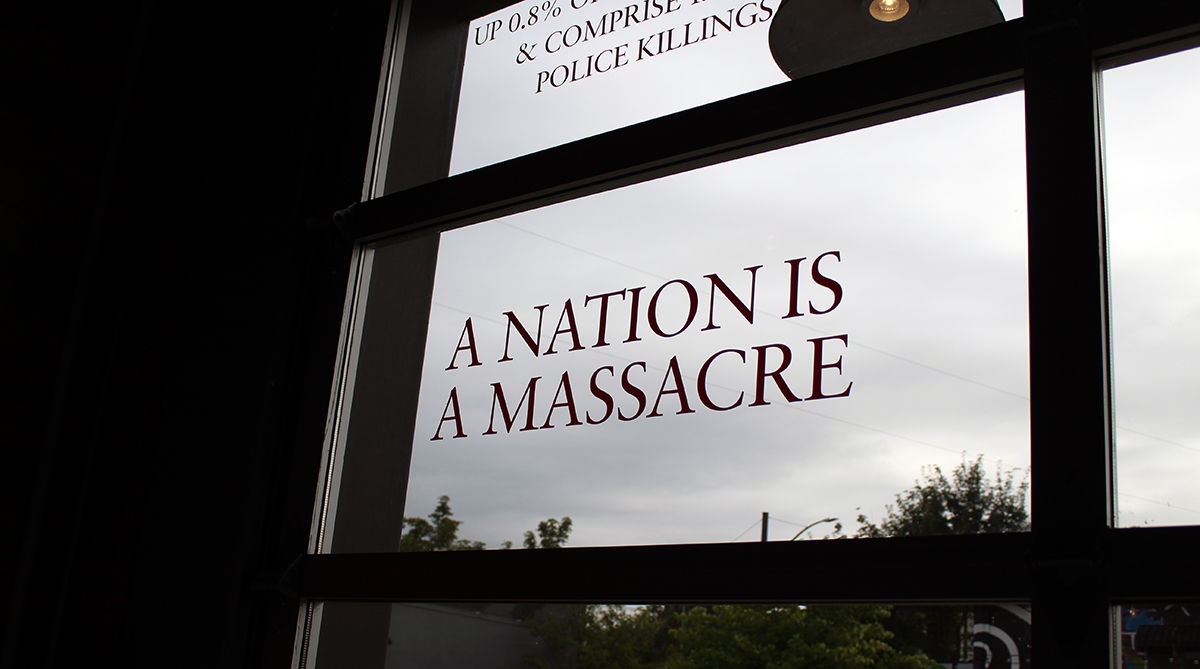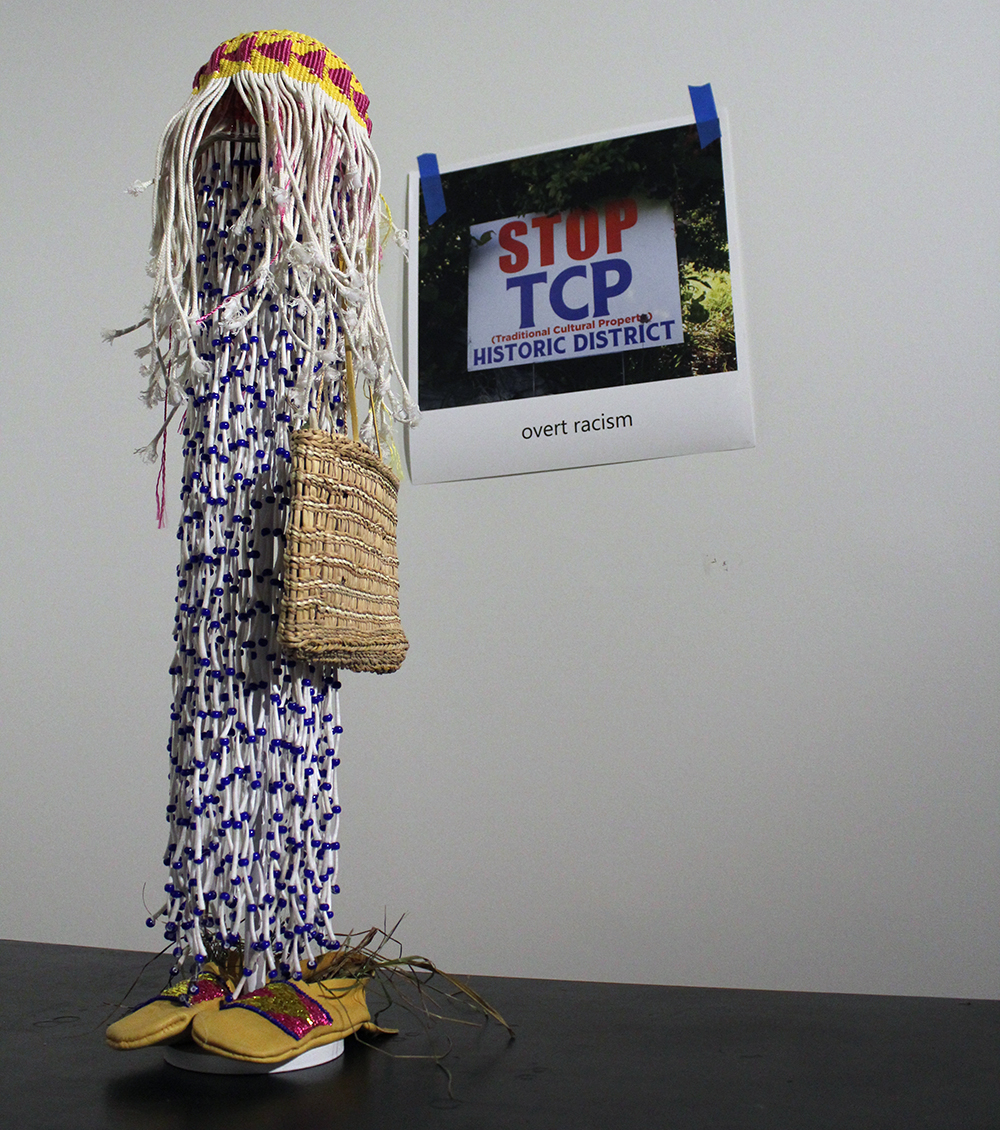The children are in cages right now.
Portland-based artist Vanessa Renwick wants those words to sink in. Her installation at Disjecta Contemporary Art Center’s Portland2019 Biennial features a memorial to the six migrant children who have died in U.S. custody since September 2018.
The Biennial comprises contemporary visual and performing artists’ interpretations of what it means to be an artist in Oregon today. For Renwick, remembering not to forget atrocities at the U.S.-Mexico border is part of that experience.
“Me and my friends talk about this, then we move on, not doing anything about it,” she said. She hopes her arrangement will inspire onlookers to donate, get involved, and to “volunteer in some way to make the world a better place,” she said. Adding, after a pause, “Goddammit!”
FURTHER READING: Merkley: Horrific conditions persist at border as U.S. traumatizes children
Her piece, which will feature children’s toys and decals, chain link shadows and visual poetry, includes a collection box for donations that will go to Innovation Law Lab, a local organization providing legal assistance to asylum seekers.
The morning Street Roots met with Renwick at the art space for a sneak peek of her work in progress, news broke that the Trump administration was attempting to remove time limits placed on the detention of migrant children under the Flores Agreement, making the length of their imprisonment indefinite.
FURTHER READING: Japanese American incarceration and present-day migrant camps: Perspectives of 3 survivors
Renwick’s is one of 18 thought-provoking installations from 18 artists at this year’s Biennial. Disjecta, located on North Interstate Avenue, took the Biennial over from Portland Art Museum about a decade ago, presenting its first in 2010. After a three-year break, this will be the center’s fifth Biennial show.

Unlike Biennials in most cities around the globe, which often feature the best of the best in international contemporary art, Portland’s exclusively features Oregon-based artists.
Three curators – Yaelle S. Amir, Elisheba Johnson and Ashley Stull Meyers – were contracted to work together on this year’s exhibition, which opens Aug. 24 and runs through Nov. 3.
“I’m interested in the dialogue the artworks have with each other,” Johnson told Street Roots. “Everybody is talking about space and identity and the land and these different vantage points and ways, and that’s what’s actually exciting, is the culmination of all of that.”
Johnson, co-founder and curator of Wa Na Wari, a black art space in a gentrified Seattle neighborhood, said that in her curation, she was interested to see the similarities and differences among regions of the Pacific Northwest.
Two exhibits she related to the Seattle experience are Sharita Towne’s installation, which she said focuses on place keeping in Portland’s historically black neighborhoods, and Anthony Hudson’s piece and performance, which will take the public on a walking tour of Portland’s now-vanished hub of LGBTQ+ culture along the Harvey Milk corridor. Hudson will lead his walking tour in drag as Carla Rossi.
“Anthony is interested in how erasure happens,” said Johnson, “which is interesting because we’re having those same conversations in Seattle.”
Artist Sara Siestreem (Hanis Coos Tribe) has created an installation depicting tensions between industry and Native culture surrounding the proposed Jordan Cove liquefied natural gas terminal in Coos Bay.
“I’m fourth-generation Jordan family,” she said. “The Jordans married into the Hanis Coos people. Jordan Cove is an ancient village site for my family, so we’ve been buried there since the beginning of human occupation, in that place, and it’s all of our gathering sites, and our traditional cultural practices are all located there.”
This past year, her tribe put together an application to protect that area as a historic site. In addition to cultural heritage, tribal members hope to protect the estuary and its wildlife, which would not bounce back from an earthquake should a fossil fuel terminal be located there, she explained.
There’s a group of landowners, she said, who are pushing false propaganda about what a historic designation would do to them. She has juxtaposed the figure of a small child in front of the group’s signage, which she called “overtly racist.”
She said tribal children have to pass by those signs on their way to school every day, “so it’s this volatile, grotesque situation that’s happening right now.”
Her installation features a child facing a matriarchal figure, both standing on top of desks taken from an oil company as a symbol of the Hanis Coos protest.
FURTHER READING: Jordan Cove LNG pipeline ‘a never-ending nightmare’
Ka’ila Farrell-Smith, a member of the Klamath Tribe, has also focused her artwork for the Biennial on the Jordan Cove project.
“We really wanted to appreciate that the history of the state is not a linear thing, that there should not be one predominant voice that sort of writes that history or communicates that history,” said curator Stull Meyers, who formerly curated at Marylhurst University’s Art Gym. “We wanted a bunch of different perspectives from people who have been here all different lengths of time and have had different experiences.”
Demian DinéYazhi, a Diné transdisciplinary artist born to the clans Naasht’ézhí Tábaahá (Zuni Clan Water’s Edge) and Tódích’íí’nii (Bitter Water) is using the platform to talk about missing and murdered Indigenous women.
The exhibit will also feature an installation from Gerrick Imatani portraying the Willamette Meteorite; an exploration of politicians who wrote Oregon’s racist, exclusionary laws, from Jovencio de la Paz; as well as others.
Live performances, which are free to the public, include a musical score set to traffic on Interstate Avenue from artist Lou Watson, a middle school class from the Harriet Tubman Center for Expanded Curatorial Practice-led discussion, a performative reading of poetry and more.
Email Senior Staff Reporter Emily Green at emily@streetroots.org. Follow her on Twitter @greenwrites.
IF YOU GO
WHAT: Portland2019 Biennial
WHEN: Aug. 24 through Nov. 3. Noon to 5 p.m. Fridays and Saturdays
WHERE: Disjecta Contemporary Art Center, 8371 N Interstate Ave., Portland
OPENING RECEPTION: 6-9 p.m. Saturday, Aug. 24.
ONLINE: Visit disjecta.org/portland2019 for a full list of events and free, live performances accompanying the exhibition.
COST: Free admission


